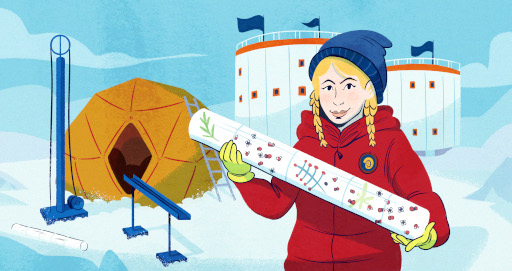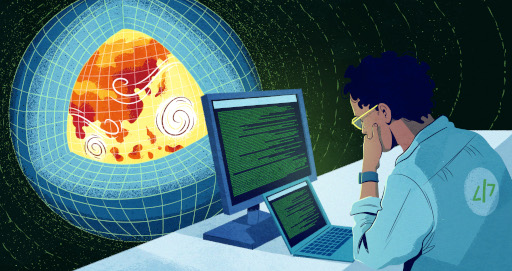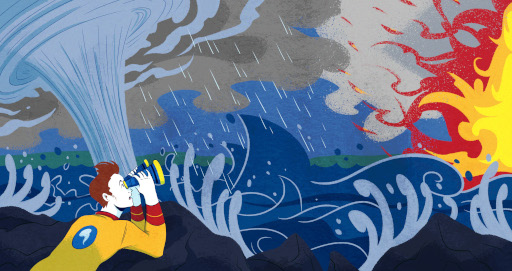The research strategy of IPSL
Since 2019, research at IPSL has been organised around nine scientific themes, supplemented by cross-functional activities (computing and observation centres, communication and mediation, climate services and education).
These themes cover:
- all time scales,
- all modes of variability, from major cycles to extreme events,
- all spatial resolutions, from the level of the planet to the local scale,
- all components of the environmental system, from the composition of the air to marine and terrestrial biogeochemistry,
- all dynamics, from major atmospheric currents to ecosystem balances,
- all the major issues related to climate change, from monitoring greenhouse gas emissions to studying ecological and urban impacts.
Field campaigns, satellite observations, digital modelling, artificial intelligence - in each of these themes, research at IPSL is at the forefront of scientific techniques.
Organisation by transversal themes
The managers of the themes are grouped together in pairs or threes (for example researcher / lecturer-researcher) and are charged with the mission of organising scientific events, linking scientific activities with education and contributing to the strategic thinking of IPSL.
Scientific Events
- Organisation of discussions in order to suggest and put forward scientific projects that unify several IPSL laboratories around the theme in question, along with the associated resources (internal and external funding),
- Strengthening of the position of the scientific theme in a national and international framework, in particular, through the coordination of projects at international level (including European projects) with a request for funding,
- Representation of the IPSL research community on the theme at national and international level.
Coordination between Research and Education
- Coordinate proposals for internships, theses and scientific projects
- Monitor the outcome of scientific projects in terms of education (thesis seminars, M2 seminars, field experiments, etc.)
Strategic Thinking
- Contribute to the drafting of the annual IPSL action plan and activity report, and to the discussions around these plans and reports with the external international scientific committee
- Contribute to the arbitration process on internal resources through calls for tenders (innovative projects, calls for foreign scientists, etc.)
- Participate in IPSL strategic council meetings










